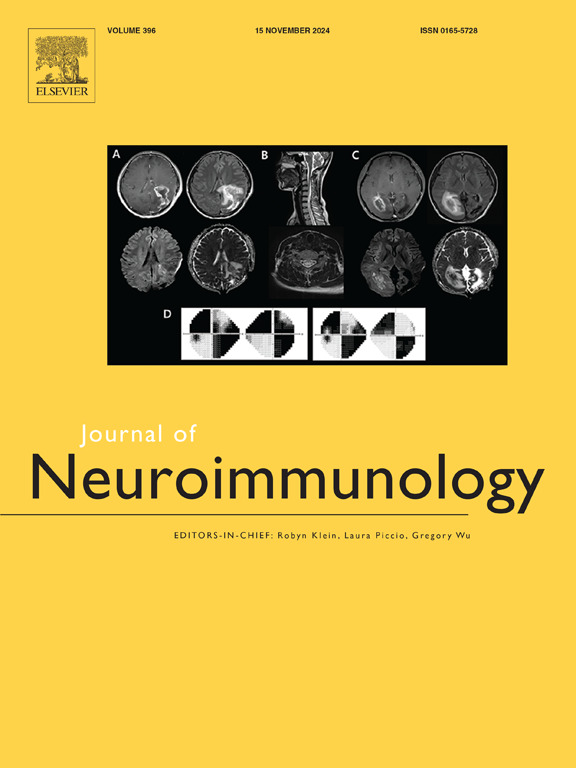A rare neuroendocrine presentation in pediatric anti-glutamic acid decarboxylase autoimmunity: Case report and literature review
IF 2.5
4区 医学
Q3 IMMUNOLOGY
引用次数: 0
Abstract
Anti-glutamic acid decarboxylase (anti-GAD) antibodies are commonly associated with type 1 diabetes mellitus (T1DM) but can also indicate severe neurological involvement, including autoimmune encephalitis. We present the case of a previously healthy four-year-old girl who developed persistent focal epileptic seizures affecting the right hemiface, which progressed to epilepsia partialis continua and were accompanied by hyperglycemia and signs of premature thelarche. Additional findings included advanced bone age and a single episode of unexplained vaginal bleeding. Brain MRI and abdominal ultrasound were unremarkable, but EEG revealed left temporal spikes. Laboratory testing confirmed elevated anti-GAD antibodies (>2000 IU/mL), supporting a diagnosis of autoimmune encephalitis. The patient was treated with intravenous immunoglobulin (IVIG), resulting in partial seizure control and improved glycemic regulation. This case underscores the need to consider autoimmune mechanisms in pediatric patients with pharmacoresistant seizures and concurrent endocrine abnormalities. Early identification of anti-GAD antibodies facilitated timely immunotherapy, emphasizing the value of integrated diagnostic and therapeutic strategies in managing rare autoimmune disorders.
小儿抗谷氨酸脱羧酶自身免疫的罕见神经内分泌表现:病例报告及文献复习
抗谷氨酸脱羧酶(抗gad)抗体通常与1型糖尿病(T1DM)相关,但也可能表明严重的神经系统病变,包括自身免疫性脑炎。我们提出的情况下,以前健康的四岁女孩谁发展持续局灶性癫痫发作影响右半面,其进展为持续部分性癫痫,并伴有高血糖和早产儿的迹象。其他发现包括骨质老化和单次不明原因的阴道出血。脑部核磁共振和腹部超声检查无明显异常,但脑电图显示左侧颞峰。实验室检测证实抗gad抗体升高(2000 IU/mL),支持自身免疫性脑炎的诊断。患者接受静脉注射免疫球蛋白(IVIG)治疗,癫痫发作得到部分控制,血糖调节得到改善。本病例强调需要考虑自身免疫机制的儿童患者耐药癫痫发作和并发内分泌异常。抗广泛性焦虑症抗体的早期识别有助于及时的免疫治疗,强调了综合诊断和治疗策略在管理罕见自身免疫性疾病中的价值。
本文章由计算机程序翻译,如有差异,请以英文原文为准。
求助全文
约1分钟内获得全文
求助全文
来源期刊

Journal of neuroimmunology
医学-免疫学
CiteScore
6.10
自引率
3.00%
发文量
154
审稿时长
37 days
期刊介绍:
The Journal of Neuroimmunology affords a forum for the publication of works applying immunologic methodology to the furtherance of the neurological sciences. Studies on all branches of the neurosciences, particularly fundamental and applied neurobiology, neurology, neuropathology, neurochemistry, neurovirology, neuroendocrinology, neuromuscular research, neuropharmacology and psychology, which involve either immunologic methodology (e.g. immunocytochemistry) or fundamental immunology (e.g. antibody and lymphocyte assays), are considered for publication.
 求助内容:
求助内容: 应助结果提醒方式:
应助结果提醒方式:


